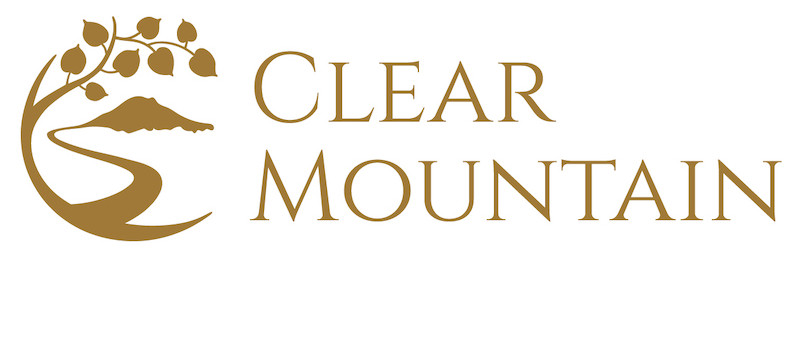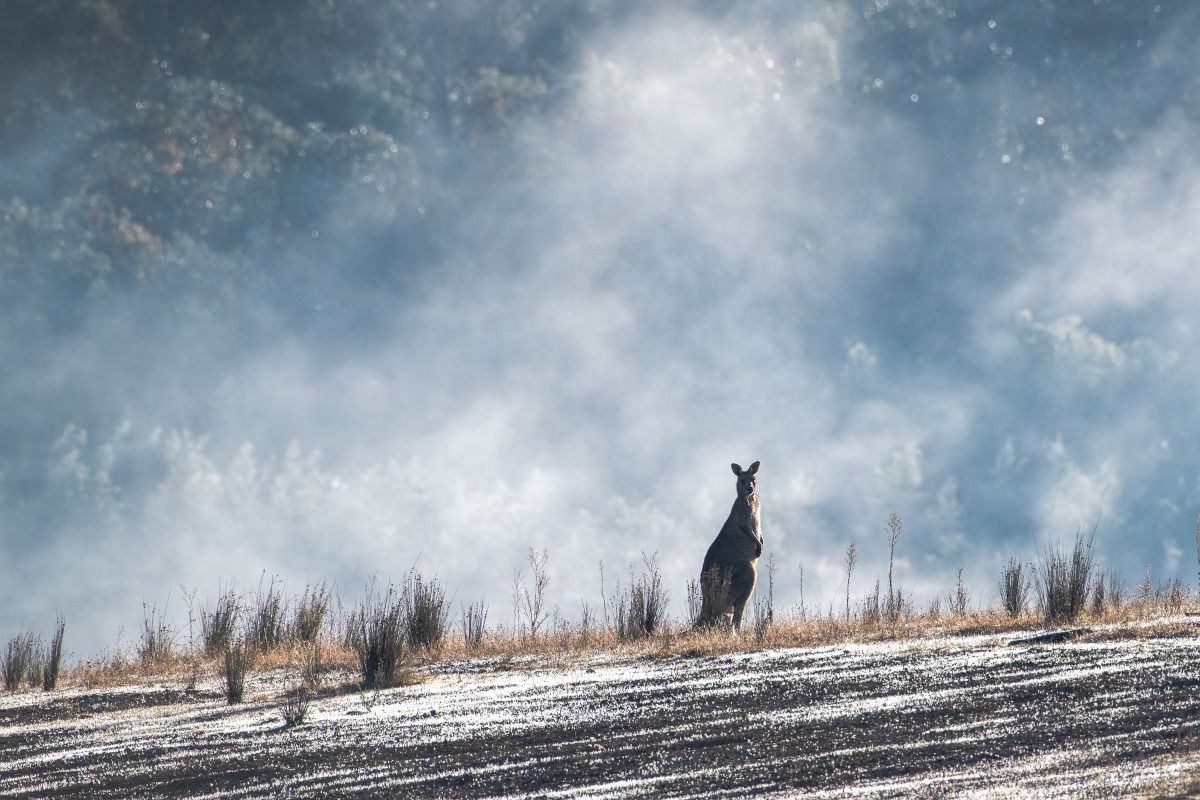While I had expected tudong, the traditional practice of Buddhist monks wandering on foot, to be a challenge in rural Australia, I didn’t think the first day of my monastic walkabout would end in an ambulance. As Tan Panya, my traveling companion, and I sit in sweat-stained robes on the stretcher usually reserved for the injured, the driver lists off recent work casualties with the nonchalant grit of a marine describing the heat of Baghdad.
“You two should’ve seen the man I drove two days ago—beaten almost to death with a baseball bat. You try to have faith, but sometimes… Hey Linda! I tried to call you,” Puck waves her long arm to a woman walking a Labrador, then guides the ambulance down a dusky gravel drive between neat suburban plots, “you two want something to eat?”
After finishing college in Oregon at the age of twenty-two, I travelled to Thailand to ordain in the Thai Forest tradition of Ajahn Chah, training there for three years before coming to stay at a small branch monastery near Sydney. Apart from being attracted to the simplicity of the teachings, I’d been inspired by the example of one of its founders, Ajahn Mun, who last century shed a bloated monastic establishment and followed the Buddha’s ancient footsteps back into the forest. Stripped of excesses by the arid breezes of northeastern Thailand and Chiang Mai, he and a new wave of teachers returned years later to society with calloused feet and a teaching so vital that it ushered in a spring of faith in whose long summer Thailand now finds itself.
While my week-long expedition into the scattering of towns south of Sydney with Tan Panya, a fellow monk, represented a far more modest undertaking, I hoped it might allow me to spark upon the world’s whetstone my teachers honed their edges against. My companion, a thirty-eight-year-old former tour guide and surfer ordained four years, wears a smile wide as the coast of his native Perth. It’s brightened his face since Puck, the driver, offered us a ride on a stretch of darkening highway fifteen minutes earlier. Though only an hour more walking would have taken us to our planned campsite thirty-five kilometers from Bodhisaddha monastery where we’d set out from that morning, approaching storm clouds coaxed us to reluctantly accept Puck’s offer of a place to stay the night.
Shouldering our bags and monastic umbrella-tent, glots, out the cab door, Panya and I follow Puck’s six-foot frame. Her light steps lead us to the porch of a house surrounded by towering Eucalyptus. Opening the door, Puck turns and smiles at us with a kindness she wears as naturally as her blue paramedic’s onesie: “There’s a place for you to sleep, though I’m not sure Buddhist monks are allowed king-size beds.”
We tell her that the floor of her garage should be fine, and she leads us past five sheep grazing in the yard to a just-renovated shed. Her jokes about work occasionally give way to a seriousness underneath.
“I’ve never picked up two Buddhist monks on the job before,” she grins and then continues quietly, “but I drove a terribly-beaten man the day before yesterday. I’m not afraid of death; it’s human cruelty that gets me.” Her hands flash brightly against her uniform as she plugs in a kettle for tea.
“Anyways, I’m going to have a glass of wine,” Puck lets the purse of her lips dissolve like dark honey in the chamomile tea we now hold in our hands. “I’m not a very good Buddhist.”
–
The next dawn finds Panya and me walking along the suburban corridors of Buxton, footsteps speeded by the eggs and toast Puck placed in front of us that morning. We follow a pair of abandoned train tracks paralleling the highway for several hours until exhaustion drops Panya into resigned squat: “Man, Po, I’m hitting a wall.”
Prompt as Zeus’ thunderbolt, the generous deity of the Australian boonies drives up in a battered white Commodore. He pokes a shaved head out the window: “You two need a lift?”
“Well, I saw one of you on the side of the road and I thought to myself, ‘Now what’s that?’” the thirty-five-year-old man in the driver’s seat grins through a scraggly mustache that pushes the limits of fashion as boldly as his dialogue defies the conventions of refined conversation, “My house is the other way, but I’ll treat you two to a steak dinner wherever you’re going. Say, I’ve always wondered, can you guys have sex?” Evan, an engineer for a local water utility who just moved from Sydney, seems immediately familiar. I squeeze into his messy backseat as he chats with Panya about the area. “Well, it’s green ‘cause it’s rainy, mate, but that doesn’t stop the city yuppies from moving here,” Evan guides the car onto the freeway entrance towards Mossvale, “but I don’t worry about all that; for me it’s about my work and my animals.”
We learn that Evan spends the majority of his time and salary caring for his two dogs and three cats, whose picture he proudly shows us on his phone. “They’re my children, you know? It cost fifteen thousand to buy the Mastiff there his two pacemakers, but I’d spend more if I had to,” he shakes his head and takes a deep breath, “wait, so your type can’t have dinner or sex?”
Such questions inevitably lead to an explanation of Vinaya, the detailed code of rules the Buddha laid down to restrain his monks and nuns. The trainings, complicated only because people are, represent a means to guide one into a simple and blameless life. Still, the encouragements towards sense-restraint, and prohibitions against everything from harming life and handling money to eating after noon can intimidate until one begins to taste the freedom that hides behind such restraint. Only a code of ethics that can still the heart’s palsied shaking and allow simplicity and love grow.
“Why do people go camping?” Panya asks, cutting to the point with all the directness of his name’s meaning, Sword of Wisdom, “It’s inconvenient, but it’s simple, and a cup of tea at sunrise is heaven.”
Evan grins ruefully, obviously not convinced that a cup of Earl Gray compares to a night out with his girl. He lets us off in Mossvale with a chuckle: “Good on ya mates.”
–
Panya and I set up camp in a park gully and sleep until hunger and the footsteps of morning joggers wake us. As we walk down Mossvale’s main stretch, a Vietnamese waitress attempts to fit two heaping bags of rolls into our alms bowls. Her timid smile touches the faces of two plump fifty-year-old women walking to work, and soon we can hardly walk for the packs of cookies heaped in our arms.
A quiet man with a grey beatnik ponytail opens the door of a coffee shop near where we stand and invites us in. Motioning to a wooden Buddha and counter plastered with spiritual sayings, Don, the owner explains that he tries to make the restaurant a place of refuge for the town. After handing us two plates of eggs and hash browns, his wife takes the bags of fresh rolls and returns ten minutes later having made them into sandwiches. Panya and I hand her a page of quotes we’ve written down and chant a traditional Pali blessing over the top-forty singer wailing in the background:
May there be every good blessing.
May the angels always protect you
By the power of the Buddha, the Dhamma, and the Sangha
May you always be well.
We shoulder our bags and walk onto a highway that stretches lazily into jade pastureland. Neither of us know whether it’s the double-shot latte or Don’s parting grin that makes us barely feel the beginnings of a gentle rain.
–
By prohibiting them from touching money, eating after noon, storing food overnight, or asking for anything other than water, the Buddha prevented his monastics from cutting themselves off in a spiritual cocoon. We are dependent on the unsolicited generosity of strangers. Gratitude at having received so much generosity draws even the most reclusive of monks and nuns to give back, to share what they have learnt, and to be of benefit to society at large. A wonderfully impractical ideal, the Buddhist Monastic Order’s status over the past two-and-a-half millennia as one of humanity’s oldest institutions represents a great testament to humankind’s generosity.
Although we do our best to pass on what kindness we’re able, leaving pages of quotes and small offerings from our meagre possessions at doorsteps and beside empty plates, we must admit eventually that we cannot repay such kindness, but must gratefully accept it and hope that our live’s resolve towards awakening represents a gift other can understand.
–
We arrive in the city of Wollongong several days later and go early for alms downtown, hoping to soon begin our planned hike through the Royal National Park another thirty-minute train ride north of the city. However, where countless passersby stopped to greet us in the previous days’ rural towns, hundreds of eyes carefully avoid ours amidst the urban bustle. The flood of demands on people’s attention in the city precludes any real connection, and Tan Panya and I feel our presence intruding on those walking past rather than inviting them to think of that which lies beyond the shifting glow of storefront LCD displays. Only a homeless woman with a plump smile and crucifix approaches us with a few dollars and a bag of muffins. Her eyes widen when we tell her we can’t accept money, and she cries at the blessing. One of her friends comes holding two 7-11 coffees in unsteady hands. Our bowls still feel light, but we decide enough is enough and leave the city to its business.
The train drops us on the Southern edge of the Royal National Park, a thirty-kilometer stretch of protected coast Panya and I hope to hike the final two days of our trip. Despite a map that seems more “Here Be Dragons” than topography, we eventually find a trail that leads us past gnarled mangroves to a group of twenty-year-olds drinking by the blue Pacific. I can’t make out their words, but somehow, I know they’re talking of my home in the States. One hums Leonard Cohen while another raises a bottle of cheap wine. Despite my robes, I almost can’t help but mouth the words to the Ryan Adams I sang to a girl when I was twenty-three in the San Juan Islands.
From the Australian coast, a salty breeze of lion’s breath tangles a boy’s hair and the sea’s flank shivers. There is faint laughter, but there is also the timeless movement of the lion’s claws, waves slowly kneading the cliffs to silt. There is the memory of a girl amidst the Madrones back home, and there is the soft cadence of my teacher’s voice: “Everyone who ordains must give up a love.” There is the quick summer of her arms, and there is the poised fang of moon.
–
I wake above a waterfall that plummets from our campsite to the dark surf forty meters below. As Venus fades into morning’s blue harbor, I finish chanting and go to find Panya who’s wrapped against the cold in his camping tarp. The two-hour hike along the coastal cliffs does more to lift our moods than our breakfast of cold instant coffee, and by the time we reach a nearby road access, our sandals slap the rock with the force of morning’s breakers.
Knowing we’d be passing today, three Thai women from Bodhisaddha monastery have come to offer a meal. They give as sincerely as they practice, two of the three being regular attendees at our monastery’s weekly all-night meditation vigils. It feels a blessing to meet people who implicitly value what we’ve given our lives to after walking through a country just beginning to understand the meaning and value of monastics. After the meal, Tan Panya and I search for a place to meditate among the park’s stunted Tea Trees and Golden Whistlers. Nothing makes you feel like you should be putting forth more effort in practice like being given curry by a seventy-five-year-old woman who sits in perfect lotus for three hours every morning.


